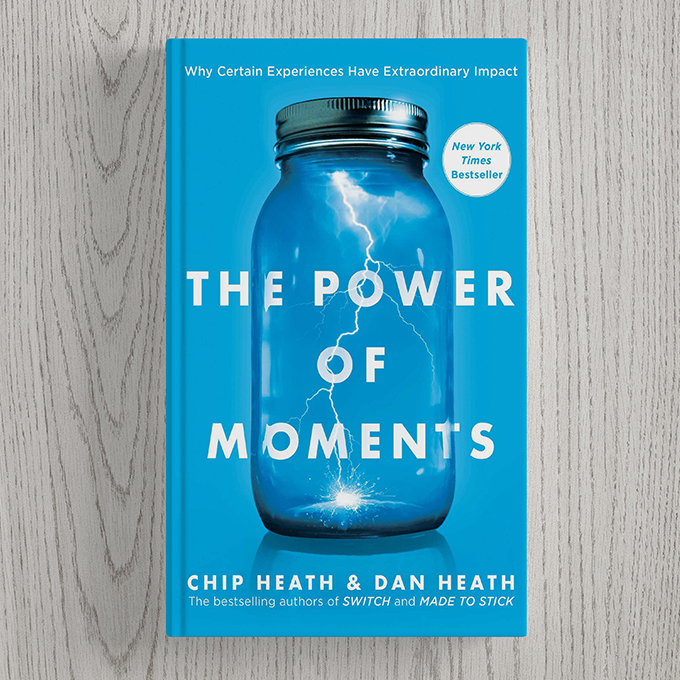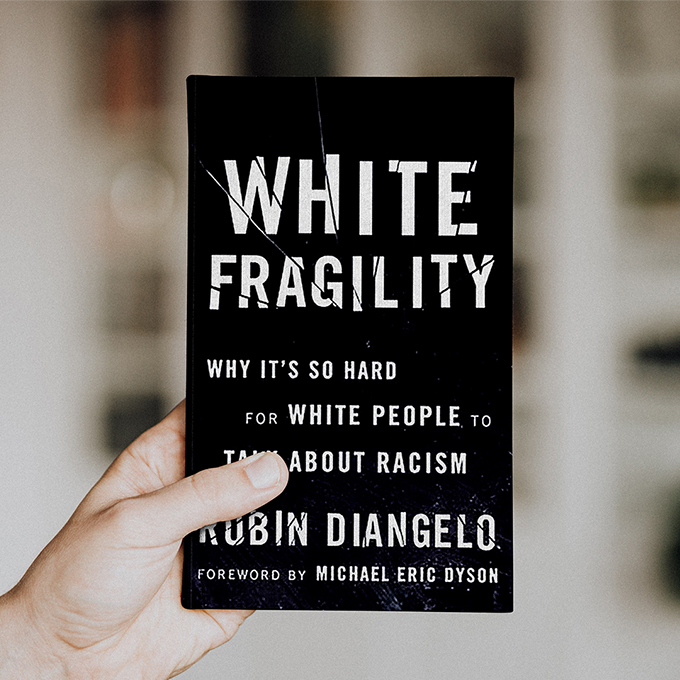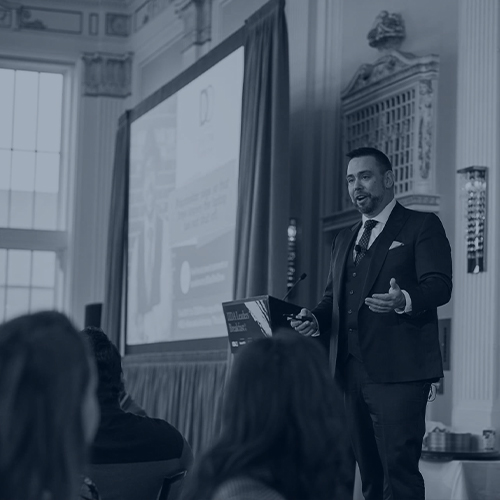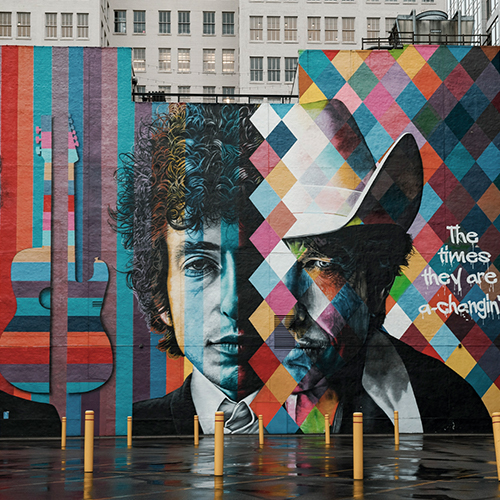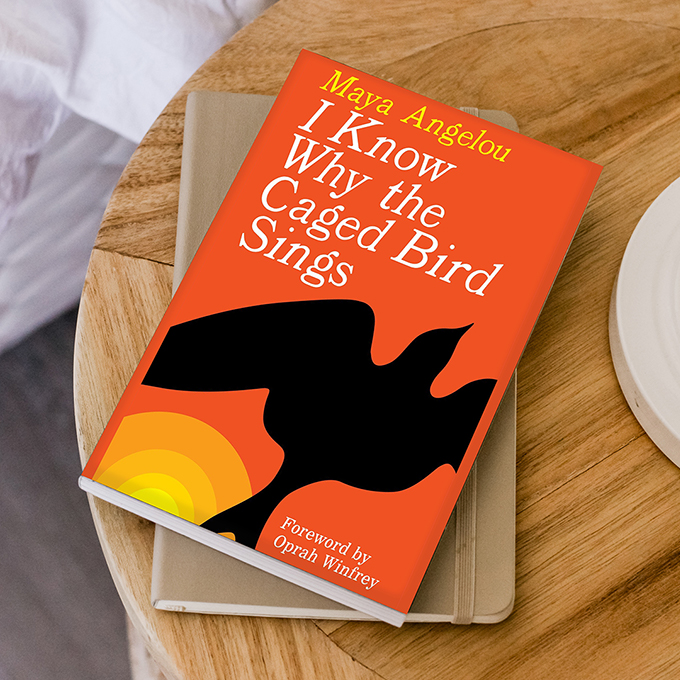Day One Reads – The Power of Moments
“Moments matter, and what an opportunity we miss when we leave them to chance. Teachers can inspire. Caregivers can comfort. Service workers can delight. Politicians can unite, and managers can motivate. All it takes is a bit of insight and forethought. This is a book about the power of moments and the wisdom of shaping them.”
I absolutely, straight-up loved this book. Likely because it focuses on a foundational aspect of my own work: the idea that our true power (and by extension our best tool for leadership) lies in the individual moments of impact that we can create. What Chip and Dan Heath have done with The Power of Moments is offer an in-depth analysis of exactly what a moment of interpersonal impact looks like, and perhaps more importantly, offer an easy-to-implement process to more consciously create them. They offer research from both personal and business perspectives on the power and importance of individual moments, and for the business-minded out there, they offer very specific examples of how the “moments-first” concept has led to significant boosts in profits for many companies.
It was my “lollipop moment” video that put my work on the radar of many people, but I think it’s important to note that the “lollipop moment” was in fact an accident: I didn’t consciously create it. My work over the past decade has been focused on how to be more deliberate in creating what I call “powerful moments of interpersonal impact.” With The Power of Moments I discovered a book that provided me with a better framework for explaining the specific characteristics of what makes a moment powerful, making it easier to identify and plan to create them.
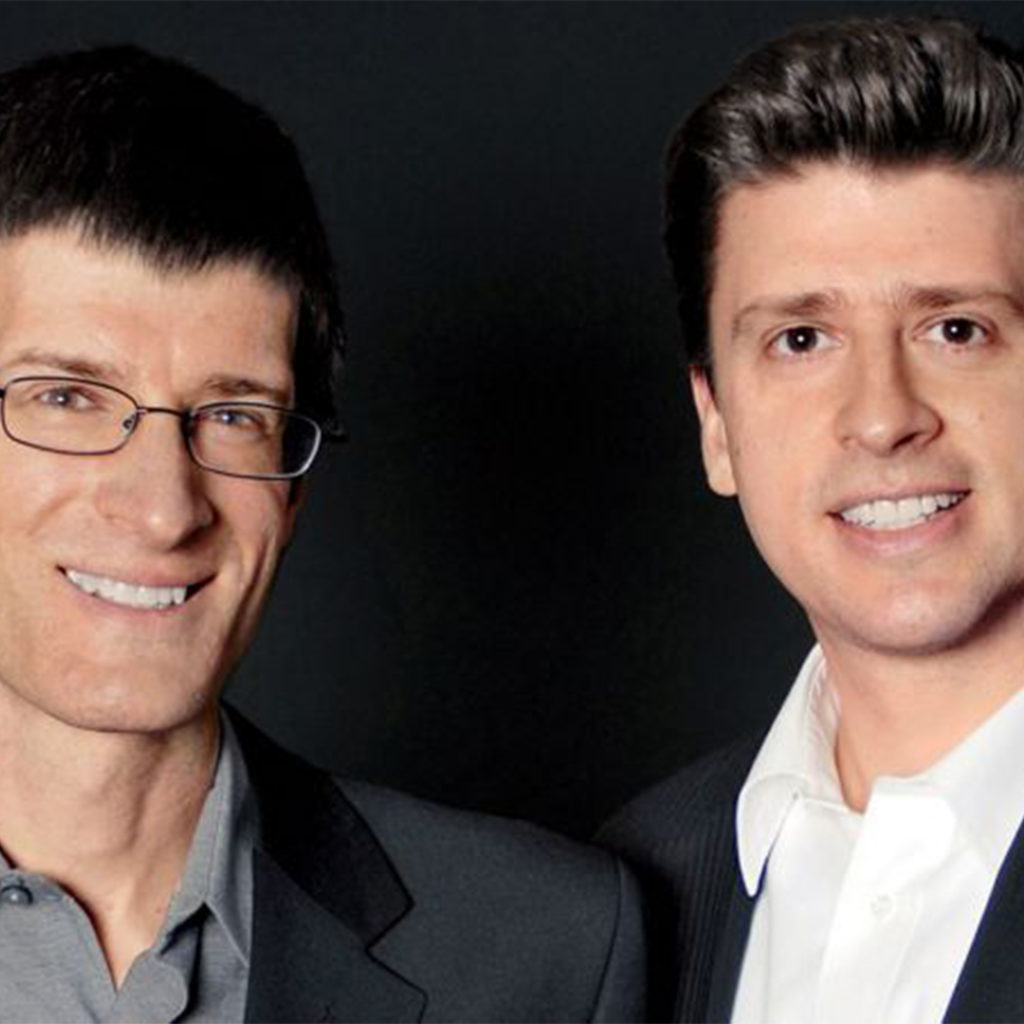
The Power of Moments: Why Certain Experiences Have Extraordinary Impact
Title: The Power of Moments: Why Certain Experiences Have Extraordinary Impact
Category*: Research-Based
Author: Chip Heath and Dan Heath
About the authors:
Chip Heath is the professor of Organizational Behavior in the Graduate School of Business at Stanford University. He received his B.S. degree in Industrial Engineering from Texas A&M University and his Ph.D. in Psychology from Stanford. Dan Heath is a Senior Fellow at Duke University’s CASE center. Dan has an M.B.A. from Harvard Business School, and a B.A. from the Plan II Honors Program from the University of Texas at Austin.
How I found it: I have to give Amazon’s algorithm credit for this one. It popped up as a “suggested read” based on previous books I’d ordered.

“Joshie,” a child’s pet giraffe left behind at the Ritz-Carlton, is the central figure in one of Chip and Dan Heath’s great examples of how relationships aren’t built over time, they’re built on moments. Check out the whole story here.
Book Jacket description:
The New York Times bestselling authors of Switch and Made to Stick explore why certain brief experiences can jolt us and elevate us and change us—and how we can learn to create such extraordinary moments in our life and work.
While human lives are endlessly variable, our most memorable positive moments are dominated by four elements: elevation, insight, pride, and connection. If we embrace these elements, we can conjure more moments that matter. What if a teacher could design a lesson that he knew his students would remember twenty years later? What if a manager knew how to create an experience that would delight customers? What if you had a better sense of how to create memories that matter for your children?
This book delves into some fascinating mysteries of experience: Why we tend to remember the best or worst moment of an experience, as well as the last moment, and forget the rest. Why “we feel most comfortable when things are certain, but we feel most alive when they’re not.” And why our most cherished memories are clustered into a brief period during our youth.
Readers discover how brief experiences can change lives, such as the experiment in which two strangers meet in a room, and forty-five minutes later, they leave as best friends. (What happens in that time?) Or the tale of the world’s youngest female billionaire, who credits her resilience to something her father asked the family at the dinner table. (What was that simple question?)
Many of the defining moments in our lives are the result of accident or luck—but why would we leave our most meaningful, memorable moments to chance when we can create them? The Power of Moments shows us how to be the author of richer experiences.
Amazon Rating: 4.7 (501 ratings – Canada)/4.7 (613 ratings – US)
Goodreads Rating: 4.22 (8,736 Ratings)
Anything someone might quibble with: I honesty couldn’t pick out anything that bothered me on this one. I considered the fact that if you were listening on audiobook it might be hard to keep track of the various lists and sub-lists of ideas and strategies they provided, but the recaps at the end of each chapter addressed that.

In the short term we prioritize fixing problems over making moments and that choice usually feels like a smart trade-off, but over time it backfires.

“Velcro quotes” (ideas that are going to stick with me moving forward):
- “Every culture has its prescribed set of big moments: birthdays and weddings and graduations of course, but also holiday celebrations and funeral rites and political traditions. They seem natural to us but notice that every last one of them was invented—dreamed up by anonymous authors who wanted to give shape to time. This is what we mean by thinking in moments: to recognize where the prose of life needs punctuation.”
- “A relationship in which one party is oblivious to the most profound moments in the life of the other is no relationship at all.”
- “I think it’s very rare for parents to see their students’ work…they see swim meets, they see dance performances, they see plays, but it’s very rare for parents to see the academic work their kids do. School needs to be so much more like sports…in sports there’s a game and it’s in front of an autidence. We run school like it’s a non-stop practice—you never get a game. Nobody would go out for the basketball team if you never had a game. What is ‘the game’ for the students?”
- “Beware the soul-sucking force of reasonableness, otherwise you risk deflating your peaks.”
- “This is the great trap of life: one day rolls into the next and a year goes by and we still haven’t had that conversation we always meant to have. Still haven’t created that peak moment for our students. Still haven’t seen the northern lights. We walk a flat land that could have been a mountain range.”
- “In the short term we prioritize fixing problems over making moments and that choice usually feels like a smart trade-off, but over time it backfires.”
- “In life we can work so hard to get the kinks out that we forget to put the peaks in.”
- “A quote from Rabbi Harold Kushner—who lost a child—captures what it means to welcome growth while wishing it had never happened: ’I am a more sensitive person, a more effective pastor, a more sympathetic counselor because of Aaron’s life and death than I would ever have been without it. And I would give up all of those gains in a second if I could have my son back. If I could choose, I would forgo all of the spiritual growth and depth which has come by way because of our experiences. But I cannot choose.’”
Total Pages: 320
Total “pulled passages”: 118
Page to Pulled Passage Ratio**: 2.7:1
P2P Ranking within category for 2020: #5 of 5 (I honestly can’t believe that, because I’d recommend this book first beyond any others I’ve read as part of this initiative)
Overall P2P Ranking for 2020: #5 of 15
*I break books into one of three categories in order to better compare apples-to-apples.
- Reflective: Relies on first-person stories or insights
- Biographical: Tells the story of an individual or organization from a third-person perspective
- Research-based: The author(s) collect third-party research to support their discussion of a particular topic.
**As I read, I highlight certain passages/insights that really connect with me. Things that make me think “buying this book was worth it for ideas/information like that.” At the end of the book, I go back and “pull” them from the book and copy them all into a single document. P2P Ratio indicates how many pages on average tend to go by between these particularly powerful insights. This book’s 2.7:1 ratio means I felt there was a passage worth pulling out and writing down every 2.7 pages.

